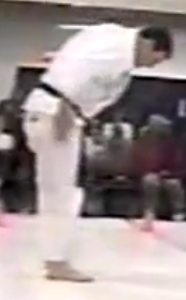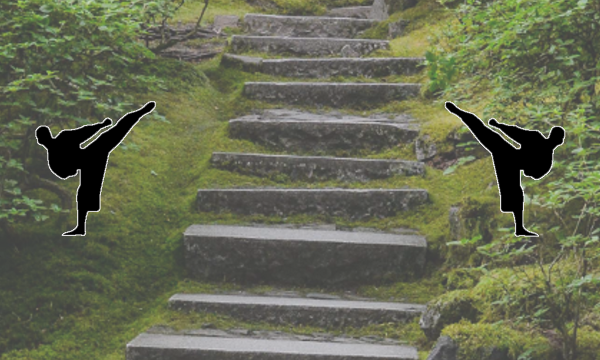Karate begins and ends with respect.
The Twenty Precepts of Gichin Funakoshi – Founder of Shotokan Karate
That’s bowing, right? We bow when we walk into the dojo. We bow when we leave. We bow before we do a kata and again after we are done. Before sparring we bow and then again after the match is over. In the martial arts we seem to be bowing all of the time.
So, respect = bowing?
Nope.
Respect is an attitude, a state of mind. Merriam Webster defines respect as
- a feeling or understanding that someone or something is important, serious, etc., and should be treated in an appropriate way
- a particular way of thinking about or looking at something
It’s a feeling or a way of thinking.
 Bowing is simply a physical movement. It may serve as a reminder that karate begins and ends with respect, but by itself it is not respect. It is the intent in which the action is performed that defines its purpose. Bending at the waist is not enough. I do that when I tie my shoes.
Bowing is simply a physical movement. It may serve as a reminder that karate begins and ends with respect, but by itself it is not respect. It is the intent in which the action is performed that defines its purpose. Bending at the waist is not enough. I do that when I tie my shoes.
I’m going to paraphrase the definition of respect down to this, “an understanding that something is important.” At the core, I think that is the concept we should keep in mind.
Every time I bow, I take that moment to remind myself why what I’m about to do is important.
Why do we bow before class? Is it to show our appreciation for the opportunity to train? Is it out of admiration for the instructors who came before us? Is it a reminder of the seriousness of training? Is it something that you do just because Sensei said to? What about when you leave the dojo? Start a kata? Work with an opponent?
Honesty in the heart
Action Karate Student Creed
I don’t have a “one size fits all” answer for any of those questions. Why can vary from person to person. What is important is how we answer those questions? The next time you bow, ask yourself why?

